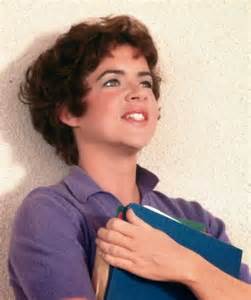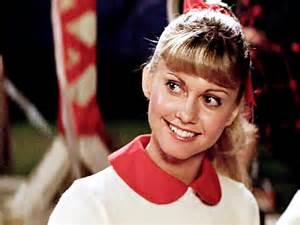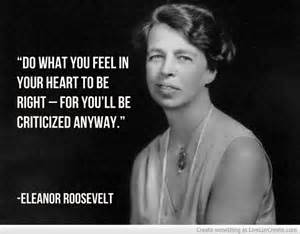There are worse things I could do
Than go with a boy or two
Even though the neighborhood
Thinks I’m trashy and no good
I suppose it could be true
But there are worse things I could do
I recently sat down and rewatched Grease on Netflix. It was a quiet evening, a bit stormy outside, and I didn’t feel like venturing out into the rain despite a serious craving for Thai. With some simple homemade pasta and a big blanket to snuggle under, I hunkered down ready to fall into the world of singing teenagers navigating the world of love, high school, and cool cliques.
First off let me just say that when you really listen to a lot of the songs’ lyrics as an adult you will be startled by some of the extremely crude phrases – Did she put up a fight? Well she was good you know what I mean, You are supreme the chicks’ll cream for grease lightning, and You know that I ain’t bragging she’s a real pussy wagon – are just a few examples. Let’s be honest, a lot of the music is about the love relationships between guys and girls, and more often than not the words reflect a strong, hypersexualized masculine presence over the timid and subservient female.
I still love the movie. Why? Is it the crazy outfits and catchy songs? Maybe the fact that we have grown 30 year olds playing 17 and 18 year olds? No, despite all of that there is one singular reason as to why I have always loved Grease. Betty Rizzo.
 Many choose to admire our female lead, Sandy. For some, it is her passive celibacy that is celebrated and for others it is her transformation into a woman that is considered a win. But for me, neither message never really set well with me and while watching it this past week I realized why. Sandy goes from a shy, sweet, and innocent girl to a sexualized shell of a woman by the end of the movie. It is a disheartening and sexist message. She must give
Many choose to admire our female lead, Sandy. For some, it is her passive celibacy that is celebrated and for others it is her transformation into a woman that is considered a win. But for me, neither message never really set well with me and while watching it this past week I realized why. Sandy goes from a shy, sweet, and innocent girl to a sexualized shell of a woman by the end of the movie. It is a disheartening and sexist message. She must give  up her essential self in order to come out on top. Her sweetness and positive demeanor cannot compete in the world of the Pink Ladies and T-Birds if she wants the Danny Zukos. Sandy decides that she must throw aside her sweaters, morality, and dislikes for smoking and drinking for skin-tight spandex, teased hair, red lips, and a strategically placed cigarette. Outwardly she transforms herself into a sex object. Inwardly she rejects everything she is. Now don’t jump on me just yet. I fully believe that Sandy is not a weak character despite her innocence. That is just who she is and she’s not afraid to be that person – well not in the beginning. She even confronts the girls when they make fun of her during the slumber party. She was stronger being herself and, for me, her transformation is actually her downfall because she allows her worth as a person to be based on appearance and not on the person she is inside.
up her essential self in order to come out on top. Her sweetness and positive demeanor cannot compete in the world of the Pink Ladies and T-Birds if she wants the Danny Zukos. Sandy decides that she must throw aside her sweaters, morality, and dislikes for smoking and drinking for skin-tight spandex, teased hair, red lips, and a strategically placed cigarette. Outwardly she transforms herself into a sex object. Inwardly she rejects everything she is. Now don’t jump on me just yet. I fully believe that Sandy is not a weak character despite her innocence. That is just who she is and she’s not afraid to be that person – well not in the beginning. She even confronts the girls when they make fun of her during the slumber party. She was stronger being herself and, for me, her transformation is actually her downfall because she allows her worth as a person to be based on appearance and not on the person she is inside.
It’s interesting how some messages continue to persist. It is 2015 and yet the idea of the perfect good girl is found everywhere – in books, movies, TV ads, and even media portrayal of female leaders, politicians, and actresses. Women are more likely than men to be judged and valued by what they wear, who they date, and whether or not they are “likable” enough. As girls, we are taught to be more like the Sandies of the world. We are told that we need to be dainty, feminine, and most of all quiet regardless of our personality. Each hair in place, makeup perfect, and voice never raised to the level of a shout. If we wear form-hugging clothing than we are easy. If we stay out too late drinking than we are rebellious and potentially asking for it. If we voice a certain point of view than we are called opinionated, catty, bitchy, and even crazy. It’s maddening.
Thankfully, there is a strong, growing movement of men and women who are taking this type of messaging to task and shedding some much-needed light on the way media, culture, and American society have perpetuated the idea that a woman’s body, sexuality, and place in the world belongs to the public. The recent statements made in the wake of Hollywood gender pay disparities by Jennifer Lawrence, Patricia Arquette, Sandra Bullock, and Carey Mulligan have added star power to a feminist movement challenging traditionally sexist ideas of female employment status and equality that has been brewing underneath the surface for decades. Add to that the various body positive and anti-slut shaming movements taking place both on our TV screens and social media, and I think it’s safe to say that in this day and age women are organizing a full-frontal assault against sexist stereotypes that have permeated America for way too long.
Which brings us back to Rizzo and Grease. Rizzo is the “bad” girl. She’s the one who tests the limits of 1950s society and sees herself standing on equal footing with the women and men around her. She knows who she is and isn’t afraid to show it; unlike Sandy who opts to mold herself into a pre-determined desirable sex object. She obviously has taken our confident Rizzo and her Pink Ladies as her means of inspiration but it’s sad to realize that the Sandy we see at the end of the movie is not the real Sandy but fake.
And unlike Sandy, Rizzo is fearless. Even in the wake of a pregnancy scandal when she is openly slut shamed and whispered about, she never apologizes. Not for the person she is and not for her actions. If she is pregnant, it is for her to handle and only her. She was the one who said screw the condom and chose to have unprotected sex – she is not denying that. She owns the fact that yes, she does like to have sex with men and yes she is a brash, straight to point, drinking, smoking, badass female. (Though I am not condoning the  smoking in the slightest. Let’s just get this straight). And I’d like to think that when the Principal at the end is listing the potential leaders the high schoolers could be, the selection of Rizzo for Eleanor Roosevelt was purposefully done because of the type of character she is and not because she looks like a young Eleanor.
smoking in the slightest. Let’s just get this straight). And I’d like to think that when the Principal at the end is listing the potential leaders the high schoolers could be, the selection of Rizzo for Eleanor Roosevelt was purposefully done because of the type of character she is and not because she looks like a young Eleanor.
Let’s remember that Eleanor Roosevelt was a force to be reckoned with. She was the first First Lady that was outspoken about civil and employment rights for women, African-Americans, and Asian-Americans. She publicly disagreed with some of her husband’s policies, worked in tandem with the Women’s Trade Union League, and pushed for the end of child labor, a set minimum wage, and 48-hour work week. Following WWII she advocated for the rights of refugees, was one of the first American delegates to the newly formed United Nations, and oversaw the  drafting of the Universal Declaration of Human Rights. And finally, under JFK’s Presidency she chaired the Presidential Commission on the Status of Women. Eleanor Roosevelt was by all intents and purposes a badass feminist and rights activist. So I like to think that the juxtaposition of her and Rizzo was a silent commendation by the Director and script writers of the character and everything she represents, flaws and all.
drafting of the Universal Declaration of Human Rights. And finally, under JFK’s Presidency she chaired the Presidential Commission on the Status of Women. Eleanor Roosevelt was by all intents and purposes a badass feminist and rights activist. So I like to think that the juxtaposition of her and Rizzo was a silent commendation by the Director and script writers of the character and everything she represents, flaws and all.
Strut on Rizzo, strut on.
[…] the victim first before anything else is not the type of world we should accept as normal. As I have mentioned before, there is a growing movement across the U.S. that is pushing back against many of the double […]
LikeLike